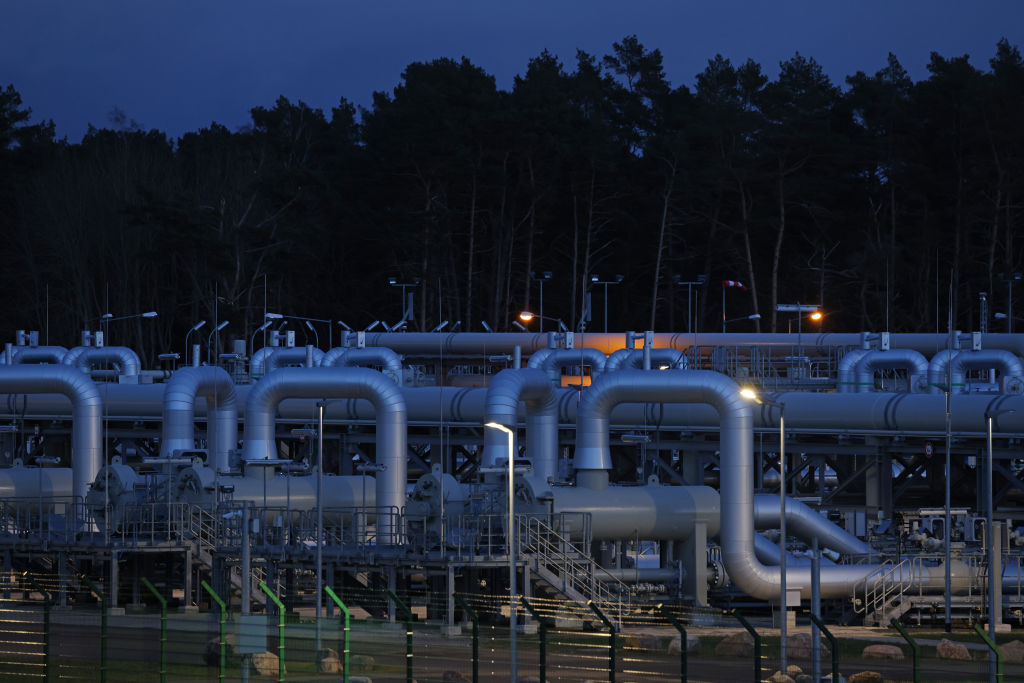EU draws record gas supplies from UK as National Grid reveals emergency plan to cut flows to Europe

The UK has exported record amounts of gas to the continent since March as European Union (EU) member states scramble to fill their gas reserves ahead of winter, to protect against further disruption in resources from Russia.
The National Grid, which oversees the countries energy supplies, revealed to news agency Reuters that around 75m cubic metres per day have been flowing from the UK into Europe.
Member states are targeting 80 per cent capacity heading into winter, with EU storage levels currently sitting at 57.6 per cent.
The company’s spokesperson revealed that if flow rates continued until September, they could account for around 15 per cent of Europe’s strategic gas storage.
The UK often has gas to spare during the lower demand summer months alongside very little storage – making it a popular vendor of gas into Europe via its pipelines into Belgium and Netherlands – known as interconnectors.
It also imports large volumes of gas from the continent at the height of winter – as it lacks the capacity to store large volumes of gas for extended periods of time since the closure of its storage site in Rough, Yorkshire four years ago.
Centrica has since applied to re-open the site, but it is unlikely to be operational this winter.
National Grid could cut off supplies to Europe this winter
The revelations of record gas sales follow media reports the UK could halt gas supplies into Europe under emergency plans if it suffers severe supply shortages this winter.
The Financial Times has revealed the National Grid would shut off its pipelines into Europe if there was loss of pressure in the gas system.
The measure would be an early step under the UK’s four-stage emergency plan to ensure the country’s energy needs were met.
| Energy Source | Mix Percentage |
| Gas (Natural + LNG) | 49 |
| Wind | 20 |
| Nuclear | 18 |
| Solar | 5 |
| Biomass | 5 |
| Other (including Coal) | 3 |
Other emergency measures include shutting off supplies to large industrial users and appealing to households to reduce their energy consumption.
The UK will stress-test its emergency gas shortage plan in September.
National Grid told the newspaper its test was an annual event, but that the latest exercise would “reflect the circumstances” as Russia curtails gas exports to Europe.
Earlier this week, there were reports households could be paid to use less electricity at peak times this winter, under plans from the National Grid, to reduce the risk of blackouts and boost long-term energy efficiency.
Energy crisis could escalate this winter
If the emergency plans were triggered this winter, it could exacerbate a deepening energy crisis on the continent with European countries facing the daunting prospect of Russia severing gas exports in the coming month.
The Kremlin has already suspended supplies to multiple countries that have refused to pay in roubles including Bulgaria, Poland and Finland.
It has also halted flows to Danish supplier Orsted, Dutch firm Gasterra and Shell for its German contracts.
Meanwhile the key Nord Stream 1 pipeline into Germany has reported 60 per cent dips this month.
Earlier this month, both Germany and the Netherlands triggered the next stages of their own emergency plans, restarting coal plants and urging industry to cut gas usage after Russia reduced its gas exports.
European gas companies have appealed to the UK to work with the EU and warned shutting off interconnectors could backfire if prolonged shortages occur.

“I would definitely recommend they [the UK] reconsider stopping the interconnection [in the event of a crisis],” said Bart Jan Hoevers, president of the European Network of Transmission System Operators for Gas.
Jan Hoevers added: “Because while it is beneficial for the continent in the summer it is also beneficial for the UK in the winter.”
The group’s members include Italy’s Snam and Fluxys of Belgium.
The EU relies on Russia for around 40 per cent of its natural gas imports and has spent €30.9bn on Kremlin-backed gas supplies since Russia invaded Ukraine in February.
It is aiming to end its reliance on Russian fossil fuels by 2027.
Gas prices on European benchmarks also remain historically high amid a flurry of activity, climbing to €142 per kilowatt hour earlier today.